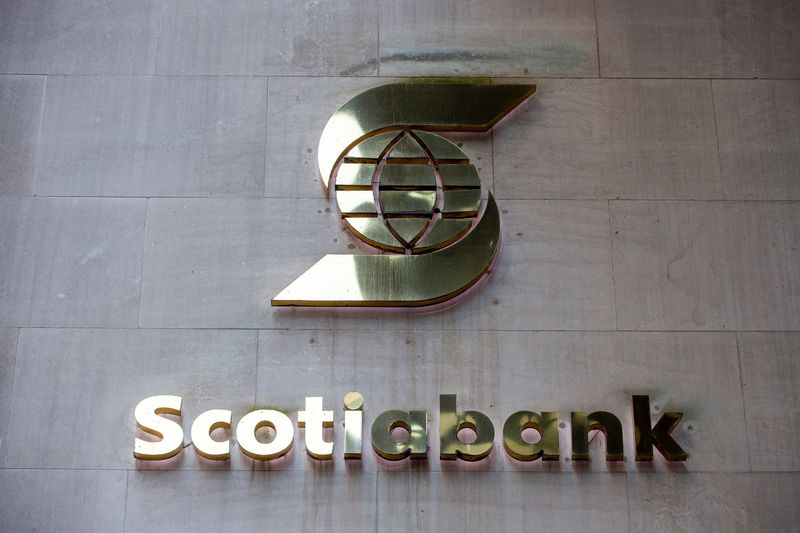By Nivedita Balu
(Reuters) - Bank of Montreal and Bank of Nova Scotia on Wednesday missed quarterly profit estimates as they faced higher expenses and set aside more rainy-day funds, sending their stocks lower.
The results come as investor confidence in the markets crumbles in the face of a relentless rate-hiking cycle and a U.S. banking crisis that began in March with the collapse of Silicon Valley Bank.
BMO shares fell as much as 4.3% in Toronto on Wednesday, hitting a more than two-year low of C$112.4, while Scotiabank fell as much as 2.5%, weighing on other major bank stocks and the country's main stock index.
Shares of BMO were last down 3.5% and Scotiabank was down 1.22%.
Both banks reported lower earnings at home, which account for roughly 40% to 50% of their income.
"In Canada, mortgages are a big portion of the book and housing has slowed immensely, and that's impacting the overall growth of the Canadian banks," Canaccord Genuity analyst Scott Chan said.
Adjusted income from Canadian banking at Scotiabank fell 10% and at BMO 8%, reflecting higher provisions for credit losses.
At Scotiabank those provisions jumped to C$709 million from C$219 million, due it said to economic uncertainty and challenging market conditions in Chile and Colombia.
Scotiabank's chief risk officer, Philip Thomas, told analysts that given the current economic outlook, it expects provisions for credit losses "to remain elevated for the remainder of the year." The bank sees inflationary pressures in some key markets in Latin America.
BMO, which completed its $16.3 billion acquisition of Bank of the West in February, said its adjusted provision for credit losses was C$318 million at the end of the second quarter, compared with C$50 million a year ago.
The bank said it expects impaired loss rates to trend towards low- to mid-20 basis points with the Bank of the West portfolio.
Executives for both banks said they were cautious about broader macroeconomic uncertainty, though BMO assured investors it was confident the Bank of the West acquisition would boost earnings in the coming years.
"I'm more confident today (in the deal) despite the environment," CEO Darryl White said.
BMO's net income, excluding one-off items, hit C$2.93 per share for the three months ended April 30. Analysts were expecting C$3.19 per share, according to Refinitiv data.
For Scotiabank, adjusted earnings came in at C$1.7 a share, versus an estimate of C$1.78 per share.
Both banks announced divided hikes and said higher expenses were largely due to new investments and spending on personnel.
At home, the Bank of Canada said it was more concerned than last year about the ability of households to pay off their debts, and was seeing signs of financial stress among some home buyers.
About a third of mortgage holders saw an increase in payments compared with February 2022, just before borrowing costs started to rise. By the end of 2026, almost all mortgage holders will face higher payments, the central bank said.
"Headline misses from BMO and Scotia ... suggest the challenging operating environment may have begun," Barclays (LON:BARC) analyst John Aiken said.

Royal Bank of Canada, Toronto-Dominion Bank and CIBC are scheduled to report results on Thursday.
($1 = 1.3372 Canadian dollars)